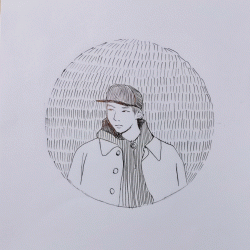11/12/2020
We were told to write a short story in 30-50 words. I write quite a lot as a hobby so I thought this would be easy for me, though I found myself struggling with the word limit.
The two short stories I wrote are:
“I am only beautiful when the sun is up,” the tree said. “When night falls, I’m invisible.”
“That’s not true,” the fireflies buzzed. “You’re right here in the soil, in memory.”
“And how should you know?”
“Because we make you beautiful at night, and no one would have to look up so high to stargaze.”
How long have they been gone?
A month. Perhaps two.
Will they come back?
No one knows.
…Was it a meteor?
No.
A tsunami?
Not this time.
Global warming?
Not yet.
The pigeons sigh. The bread crumbs don’t taste the same.
I decided to present the former story to the class as it is quite light-hearted with an interesting twist. A critique I received was to cut down the sentences to make it more effective.
We then paired up and played around with the story to manipulate it into different, more abstract writing. This was what we came up with:
Perhaps they’re gone
Every sentence begins with a P
Periods of time wasted waiting for them
Possibly they will come back?
Puzzling
Pretty sure that was a meteor
Plain bread, anyone?
Coo coo coo?
Just pigeon gibberish
Coo. Coo coo.
…Coo coo?
Coo coo coo.
Coo…?
Coo.
Coo…
A lot of different writers were presented during the class, but the ones that I was most drawn to were poets, notably Neil Hilborn and his poem ‘OCD’
I’ve always loved poetry because of how only a few words can be crafted into art or a performance. I initially had thought about including writing in my book and creating a specific font for it, though I feel like incorporating words as a performance or a speech would go with the idea of animation more, as words don’t come alive until they are read by someone.
Thinking back to the lessons on objects, I thought about the poem One Art by Elizabeth Bishop, which illustrated the state of coming to terms with the loss of various objects in our lives.
The art of losing isn’t hard to master;
so many things seem filled with the intent
to be lost that their loss is no disaster.Lose something everyday. Accept the fluster
of lost door keys, the hour badly spent.
The art of losing isn’t hard to master.Then practice losing farther, losing faster:
places, and names, and where it was you meant
to travel. None of these will bring disaster.I lost my mother’s watch. And look! my last, or
next-to-last, of three loved houses went.
The art of losing isn’t hard to master.I lost two cities, lovely ones. And, vaster,
some realms I owned, two rivers, a continent.
I miss them, but it wasn’t a disaster.—Even losing you (the joking voice, a gesture
One Art by Elizabeth Bishop
I love) I shan’t have lied. It’s evident
the art of losing’s not too hard to master
though it may look like (Write it!) like disaster.
I’m not the best at writing poetry, and I can’t write poems that I feel are good enough to represent myself, though I can really resonate with the sentiments of One Art, and the way objects and places are treated not as just what they are but what they represent.
For the book, I think the words will definitely be incorporated in the filming of it, and I hope I would be able to use One Art or the sentiment of it in the final film.
⇦ MAPS
